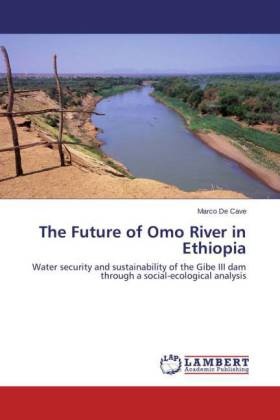Read more
Water is one of the resources whose usage is considered strategic for the future geo-political assets. Dams have always been one of the symbols of human endeavours enabling one to produce low-cost energy and to control floods for agriculture. However, the so-called large dams , massive artificial bodies, have been built more and more, requiring complex arrangements from a technical point of view. If they have been seen as a feasible solution for different problems by governments, they can heavily damage local human conditions. This is what is happening in the Omo River in Ethiopia. The government wants to frog-leap towards modernity bypassing the rights and the uses of local populations through the construction of the 4th largest dam of the world, Gibe III. Two hundred thousand people are under threat for the on-going environmental consequences, facing as well the effects of climate change. Therefore, the work wants to shed further light on the developmental issues of Ethiopia, trying to depict a broad frame of analysis through a social-ecological perspective on the current drama of Omo River.
About the author
Marco De Cave studied Peace & Development Work in Sweden and he is passionate about sustainable management of resources and social integration. He has lived in different European countries and speaks several languages. 'Latcho drom' is his life sentence which means 'may your journey be safe' in Gypsy language.

